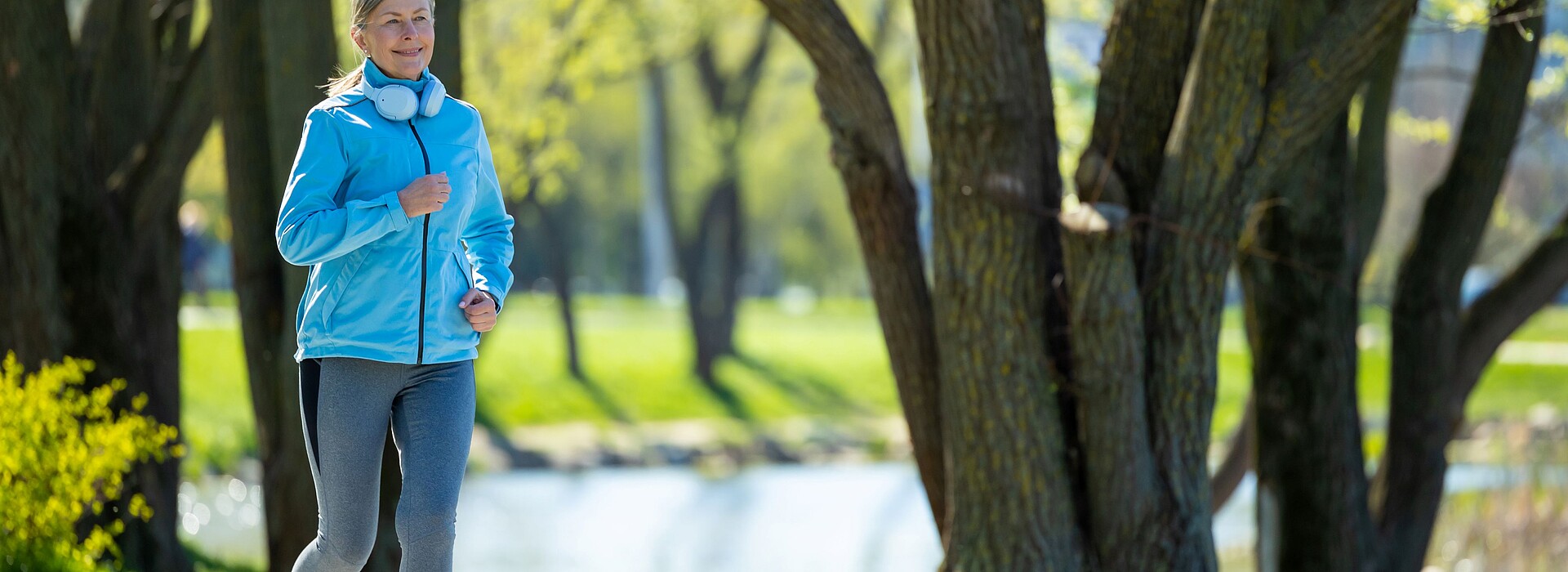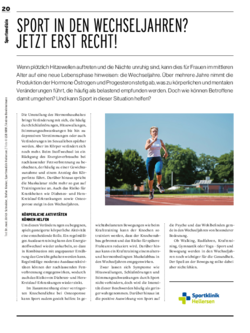WE IN SPORT 03.2025
Magazine of the Landessportbund NRW
PDF-Download
When heat waves suddenly occur and the nights are restless, this can indicate a new phase of life for middle-aged women: the menopause. Over several years, the production of the hormones oestrogen and progesterone steadily decreases, which leads to physical and mental changes that are often perceived as stressful. But how can those affected deal with this? And can sport help in this situation?
The change in hormonal balance brings with it changes that are often noticeable through sleep disorders, hot flushes, mood swings and even depressive moods or changes in your sex life. But even more changes occur in the body. In the metabolism, a decrease in energy consumption can be observed as fat burning decreases, which often leads to weight gain and an increase in body fat. In addition, the muscles no longer respond as well to training stimuli. The risk of diseases such as diabetes, cardiovascular disease and osteoporosis also increases during the menopause.
Physical activity can help
Increased physical activity plays a key role in counteracting these changes. Regular endurance training can boost the energy metabolism so that weight can be maintained in combination with an adapted diet. Regular moderate endurance activities can counteract the decline in fat burning, which also reduces the risk of diabetes and cardiovascular disease. In the context of reduced bone density in osteoporosis, sport can also provide targeted help: In weight-bearing movements such as strength training, the bone can be trained in such a way that bone loss is slowed down and the risk of subsequent fractures is reduced. Strength training can also counteract age- and hormone-related muscle loss during the menopause. Although symptoms such as hot flushes, sleep disorders and mood swings cannot be prevented through exercise, the intensity of these symptoms is often perceived as less severe. In addition, the positive effect of sport on the psyche and well-being is particularly important during the menopause. Whether walking, cycling, strength training, gymnastics or yoga - sport and exercise become even more important for your health during the menopause. However, the fun of exercise should not be missing.

Stefan Krakor
Sports therapist
Training therapy, rehabilitation and health sports
- Phone+492351 945-2254
- stefan.krakor@hellersen.de


